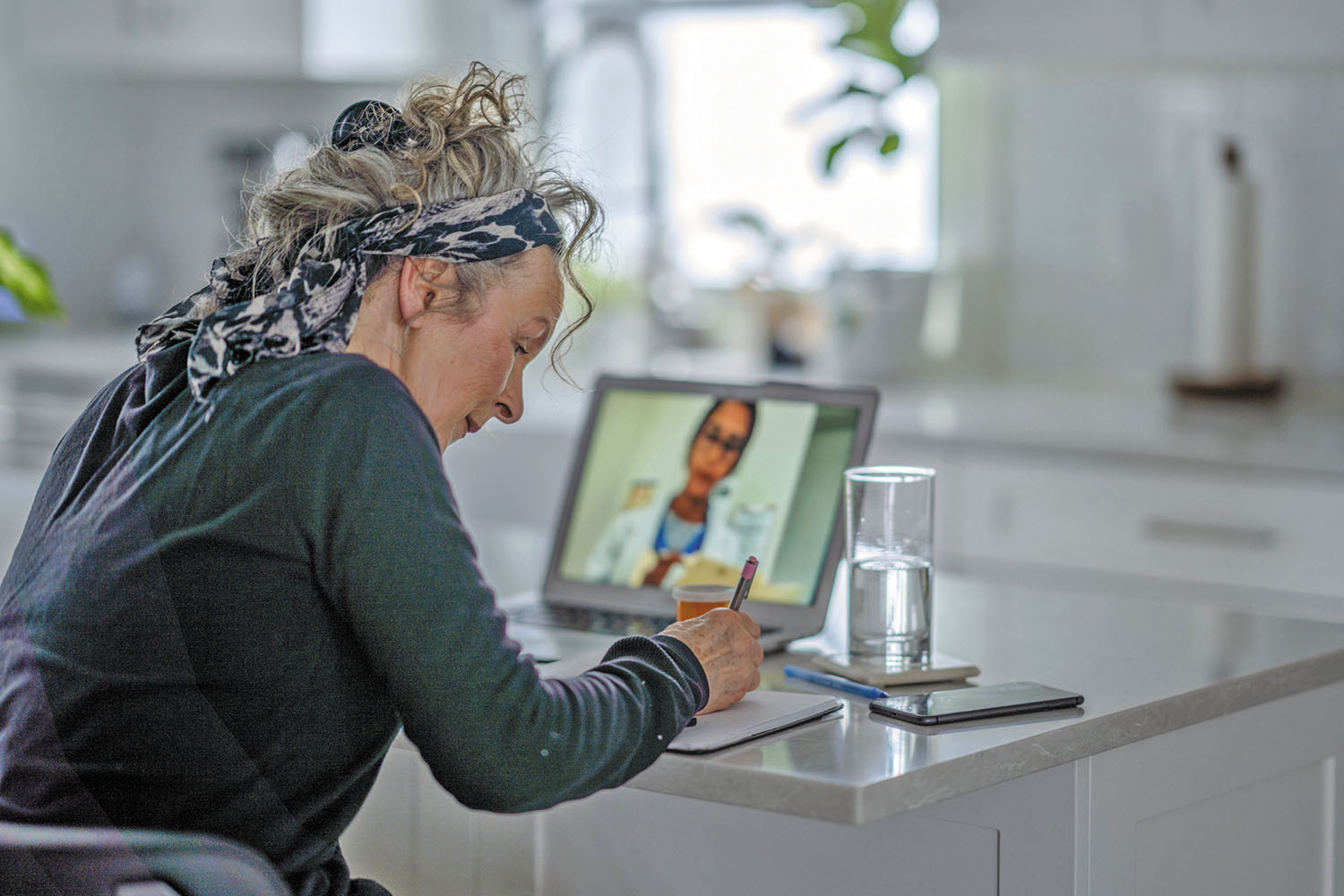
Trying to lose weight? Be careful not to lose muscle

Is your skin problem actually an autoimmune condition?

People with diabetes face higher risk of hearing loss

Antibiotic-free fixes for recurrent UTIs

Musculoskeletal syndrome of menopause: When menopause makes you ache all over

When can older women stop getting mammograms?

To lose weight, especially harmful belly fat, combine diet and exercise

Can men hold off on treating recurring prostate cancer?

The 7 types of rest and why we need them all

What are the early warning signs of cervical cancer?
Healthcare Archive
Articles
Telehealth for your heart
Video visits and other forms of telehealth, which were commonplace during the COVD-19 surge, can be good options for treating people with heart disease. Telehealth delivery options can be synchronous or asynchronous, and they may also include remote monitoring or measurements such as weight and blood pressure. Blended care that combines in-person appointments with virtual visits may be the wave of the future.
How to choose and guide your health care proxy
A health care proxy is a person designated to make health care decisions for someone who becomes unable to make them. The best candidate for the job is someone who knows the patient well, such as a family member or friend. The proxy needs the emotional and mental ability to make decisions based on what the patient wants, no matter the health scenario or environment, such as a hospital or long-term care facility. At the time of proxy selection, the patient should communicate his or her beliefs, values, and wishes for care.
Podcasts to enhance your health IQ
Listening to health-focused podcasts can help boost a person's knowledge about the latest medical treatments and trends, and how to live a healthy lifestyle or cope with chronic disease. Just make sure the podcasts come from reliable sources. When choosing a health podcast, it's important to seek out credible hosts, such as well-credentialed health professionals or health journalists who present scientific data in a balanced rather than biased manner. People should avoid programs that promote poorly researched or scientifically unfounded diets or treatments.
Should you hire a medical wingman?
When navigating the health care system becomes challenging, a number of professionals can help. Some, such as home care aides or certified nursing assistants, can assist with errands such as getting to the doctor and picking up medications. Others, such as Aging Life Care Professionals or patient advocates, can develop and run a person's overall care plan, negotiate with insurance companies, arrange to pay medical bills, research treatment options, hire and manage home care helpers, and more.
What is an annual wellness visit?
The routine yearly medical check-up is now more often referred to as the annual wellness visit, which allows people to formulate detailed health goals with their doctor and design plans to meet them, as well as assess the possibility of life-changing events, like heart attack, stroke, and cancer.
Decoding the price of heart tests and procedures
Prices for six common heart tests and procedures at top-ranked U.S. hospitals showed surprisingly wide variations, according to a 2022 Harvard study. There was a 10-fold difference in the median prices patients pay for a heart ultrasound, and even larger disparities for procedures such as implanting a pacemaker. The differences may reflect power dynamics between hospitals and insurance companies. For both entities, factors such as location, size, and popularity influence that dynamic — which, in turn, affects the market dynamics that dictate costs.
The rise of computational medicine
Harvard Medical School has created a large department dedicated to developing and teaching young scientists about the emerging field of computational medicine. This field uses new mathematical techniques to make sense of the thousands of numbers generated in experiments measuring various molecules. Analyzing such "big data" was once unimaginable. Now, scientists have the tools to do it, and to compare tissue of people with and without a disease to find out which molecules are different.
Why is it so challenging to find a primary care physician?
An adequate supply of primary care physicians is essential for our health care system to function properly, but it's becoming more and more difficult to find one. Rates of burnout are high among PCPs, and many are considering cutting back their work hours or leaving altogether.
Navigating "doctor speak"
Doctors around the world use standardized medical terms for a common frame of reference. Laypeople don't always know what that medical jargon means, which can lead to poor health outcomes. When a patient doesn't understand what a doctor is saying, it's important for the patient to ask for clarification. It may help to prepare a list of questions in advance and bring it to the medical appointment; bring a friend along who can take notes and ask questions; and repeat the doctor's advice before the end of the appointment, to make sure it's understood.
What to do when a diagnosis is elusive
Medically unexplained symptoms, which are not easily deciphered account for many visits to primary care doctors and specialists. Individuals seeking answers should work with closely with their primary care doctors. Strategies such as cognitive behavioral therapy can help people manage stressors that affect physical health.

Trying to lose weight? Be careful not to lose muscle

Is your skin problem actually an autoimmune condition?

People with diabetes face higher risk of hearing loss

Antibiotic-free fixes for recurrent UTIs

Musculoskeletal syndrome of menopause: When menopause makes you ache all over

When can older women stop getting mammograms?

To lose weight, especially harmful belly fat, combine diet and exercise

Can men hold off on treating recurring prostate cancer?

The 7 types of rest and why we need them all

What are the early warning signs of cervical cancer?
Free Healthbeat Signup
Get the latest in health news delivered to your inbox!
Sign Up











